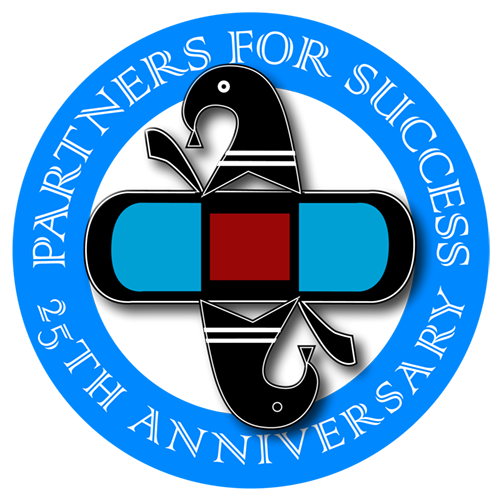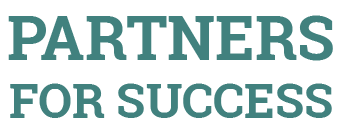SUMMER YOUTH EMPLOYMENT PROGRAM
Each summer PFS and community partners (including Laguna Development Corporation, and the Pueblo of Laguna) hire local youths aged 14-25. The program introduces younger participants to the world of work and responsibility, while assisting older youth with internships that may lead to full-time employment.
Please call the office if you have further questions: (505) 552-9322
PREP TIPS FOR JOB INTERVIEW SUCCESS
PACK (AND DRESS) ACCORDINGLY
Plan the perfect outfit. For companies that have a business or business casual dress code, keep your look basic and conservative for the first interview. Not sure what to wear? If you have a contact or friend who works at the company you're interviewing with, see if he or she can give you a heads up as to what people wear.
Don't forget about the little things: Shine your shoes, check for loose hems, and make sure your fingernails look manicured. This is the stuff that you don't always think people notice—but they do!
Do a little pampering, because looking your best helps you feel your best. If that means you need a facial, haircut, razor shave, or even a new interview outfit, then by all means do it! Feeling good about yourself will boost your confidence—and we probably don’t have to tell you that confidence is key to landing your dream job.
Print out five copies of your resume. You never know who you'll be meeting with, and you want to have your resume ready to go in case you're asked for it.
Prepare a reference list, whether you think you'll be asked for it or not. For each reference, include a name, title, organization, division or department, telephone number, and email address, as well as a sentence briefly explaining the relationship.
KNOW YOUR AUDIENCE
Spend a few hours learning everything you can about the company—from as many sources as you can. Talk to friends and contacts, read current news releases, and, yes, spend some time on Google. Often, candidates just look at the information a company is pushing out via the website and social media, but fail to look more in depth at what others are saying. By doing so, you’ll get the larger picture about the company (along with any negative press).
Get a sense of “who” the company is and how to embody a similar personality during your interview. Start by reading the company’s blog and Facebook page—the tone of the company’s content on these sites will speak volumes. Or, try reading individual employees’ blogs to figure out what type of people work (and excel) there.
Twitter can also be an excellent resource because you can see what the company and its employees are talking about. Are they sarcastically bantering with each other? Feel free to throw a few jokes in as you’re meeting with people. Are they tweeting up a storm about an event or product launch? Use it as a conversation starter.
Before your interview, get a list of the people you’re meeting with from the company. Then, make sure you know their background and reputation to the extent possible—including what type of behavior might intrigue them or turn them off. Finally, prep some questions that are specific to each interviewer: Ask for details about her focus at the firm, discuss current events on his specialty, or bring up a common interest you know he or she has outside the office.
Different firms use different interview formats, so ask what you'll be faced with. For example, some companies will ask case questions or brain teasers while others will give a standard set of typical interview and leadership questions. Asking the recruiter or HR contact about the interview format ahead of time is totally fair game. And once you know, investing time to become familiar with this style can make a huge difference.
ANTICIPATE THE QUESTIONS YOU'LL BE ASKED—AND HOW TO ANSWER THEM
Even if you’re a well-oiled interviewing machine, it’s essential to spend time thinking carefully about what skills, accomplishments, and interview answers will resonate with your interviewers most. Your management abilities? Your creativity? The examples you share will probably be slightly different everywhere you interview.
Have an answer to "tell me about yourself!" ready to go. Interviewers always ask it, and you want to be sure to nail this first part of the interview.
Don't be thrown off by the classic, "What's your biggest weakness?" One foolproof method: Think of something that you struggle with but that you’re working to improve. For example, maybe you’ve never been strong at public speaking, but over the past few years, you've taken on leadership roles and volunteered to run meetings to help you be more comfortable when addressing a crowd.
You can easily find lists of common interview questions—but don't prepare by writing out your entire answer; instead, jot down a few notes or bullet points and keep them on hand for the interview itself. You’ll ensure you cover the bases—without reading from a script.
It's likely you'll get asked why you're interested in this particular role and company. (And if you can’t answer this question, you shouldn’t be in the interview!) So to make sure you can, consider why you’re interested in the function and identify a couple of key factors that make it a great fit for you (e.g., “I love customer support because I love the constant human interaction and the satisfaction that comes from helping someone solve a problem").
Don't just think about how you'll answer certain questions; practice looking in the mirror and answering them out loud. This prep work will help you clarify your thoughts and make you much more comfortable during the interview.
Do as many mock interviews as you possibly can with a friend. You’ll be much better at answering, “So, tell me about yourself!” and “What would you bring to the position?” the 100th time you do it than the first, right?
When the interview winds down, you'll surely be asked, “So, do you have any questions for me?” So, prepare a few smart questions—thoughtful ones that show you’ve been paying attention and have done your homework when it comes to researching the company and the specific job you’re after.
GET YOUR HEAD IN THE RIGHT PLACE
Spend the most time before the interview not rehearsing questions, but reflecting on your career chronology to date. When you know your story inside and out, it’s much easier to apply examples to just about any interview question.
Getting ready for a technical interview? Start preparing as early as possible. Working through a prep book or sample questions will not only give you good practice, but it’ll also put you in the right problem-solving mindset.
Come up with a go-to phrase that'll help you avoid dead air if you need time to stall and gather your thoughts. Two strategies that work well are repeating the question thoughtfully before answering or saying (slowly), “Now, that is a great question. I think I would have to say…."
Brush up on what certain body language conveys. Be aware of what you’re communicating through your posture and stance—and make sure it’s good. (For example, sitting with your arms and legs crossed sends a message that you are closed-off or feel defensive.) Think your movements through ahead of time so you are not distracted (or distracting) during the interview.
Oh, and get some sleep. This sounds like something your mom would tell you, but there are few things that will throw you off your game like sleep deprivation.
SOCIAL MEDIA MISTAKES MOST LIKELY TO COST YOU A JOB
Your Facebook postings might win over your friends—but they could also cost you a job, a new study finds.
The data shows 93% of hiring managers will review a candidate’s social profile before making a hiring decision. And that review matters: 55% have reconsidered a candidate based on what they find, with most (61%) of those double-takes being negative.
According to respondents, the worst thing you can do is make any kind of references to illegal drugs. That should probably be common sense—but in case it’s not, know that 83% of recruiters say doing so is a strong turn off. (Perhaps more interesting: 2% of hiring managers think it’s a positive.) Also on the “obviously don’t do this” list are “sexual posts,” which 70% of recruiters say will count against you (only 1% are fans). Two thirds said that posts including profanity reflected poorly; over half didn’t like posts on guns, and 44% saw posts about alcohol as concerning. You also want to take another read of what you’ve written: 66% of hiring managers said they would hold poor spelling and grammar against candidates. You might also want to consider keeping your political affiliation to yourself, since slightly over 1 in 6 recruiters said that was a potential negative.
The takeaway for workers is clear: Best be vigilant not to post anything you wouldn’t mind an employer or potential employer seeing. Make sure to check your Facebook privacy settings, but don’t depend on them because they’re known to change frequently.
WHAT IS SELF-ADVOCACY?
Self-advocacy is the ability to speak-up for yourself and the things that are important to you. Self-advocacy means you are able to ask for what you need and want and tell people about your thoughts and feelings. Self-advocacy means you know your rights and responsibilities, you speak-up for your rights, and you are able to make choices and decisions that affect your life. The goal of self-advocacy is for YOU to decide what you want then develop and carry out a plan to help you get it. It does not mean you can’t get help if you need or want it, it just means that you are making the choices and you have to be responsible for the choices you make.
Why is Self-Advocacy important?
It is important to learn self-advocacy skills because it helps you decide what you want and what is possible for you to expect. When you have good self-advocacy skills you can have more control and make the life decisions that are best for you. Self-advocacy helps to empower you, to speak-up for yourself and make decisions about your life.
When is Self-Advocacy useful?
- When you want to be listened to.
- When you are being assessed.
- When you are making a complaint.
- When you are developing or reviewing a care plan.
Who is a Self-Advocate?
- Someone who says what they think and feel.
- Someone who speaks-up for things they believe in.
- Someone who knows and understands their rights and responsibilities.
- Someone who takes responsibility for their own life.
- Someone who makes decisions that affect their life.
- Someone who helps to improve their life.
- Someone who tries to change the way things are done.
How do you Self-Advocate?
- You need to decide what you want to speak-up about.
- You need to plan how you are going to speak-up.
- You need to speak-up for yourself.
- You need the freedom to be able to make basic choices about your life.
- You need to be given the authority to be the expert on your life; you are the one who has to live your life so you should be able to make decisions which affect you.
- You need to have support to make and achieve your goals, the final decision should be yours but it is good to have other people to help you.
- You need to be responsible for your decisions. You need to try to make the best choices and fix those that did not work.
- You need to believe you are able to change the things in your life that are not working and work towards the things that are important to you.

